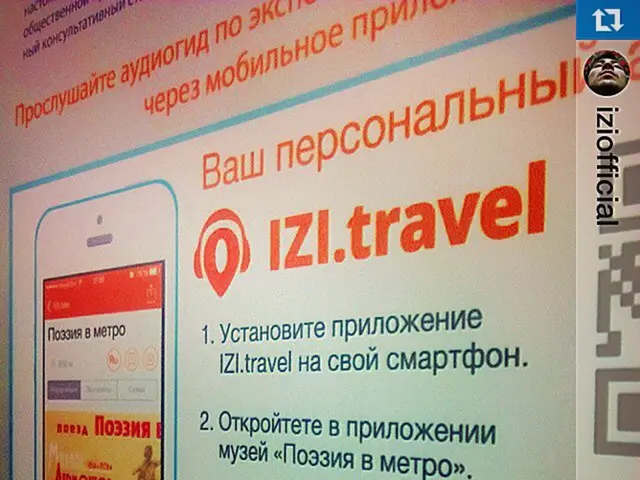Monitoring Global AI Regulations
The United Arab Emirates (UAE) is rapidly establishing itself as a global hub for Artificial Intelligence (AI) innovation, with a regulatory landscape that fosters growth while ensuring compliance and data protection. This article provides an in-depth look at the AI regulatory landscape in the UAE, focusing on Mainland UAE and its financial free zones, DIFC and ADGM.
Mainland UAE
The UAE has taken a proactive approach to AI governance, with the UAE Cabinet approving the world's first AI-powered regulatory intelligence ecosystem in April 2025. The country's strategic vision, as outlined in the UAE Artificial Intelligence Strategy 2031, aims to cement the UAE as a global AI leader by enhancing AI adoption across sectors.
Federal laws relevant to AI include the Federal Decree-Law No 45 of 2021 on Personal Data Protection, which governs data privacy essential for AI systems. The government supports innovation in AI via extensive investments and digital transformation strategies, such as Abu Dhabi’s Digital Strategy 2025-2027 that includes a AED13 billion budget to enable AI-powered governance and digitization of government services by 2027.
Mainland UAE fintech and AI companies benefit from streamlined licensing under new frameworks launched by the Central Bank of the UAE, facilitating easier market access and tax incentives, boosting AI-driven fintech growth.
Financial Free Zones (DIFC and ADGM)
The DIFC and ADGM operate under their own legal frameworks and regulatory bodies, tailored to their specific economic and business environments.
DIFC has amended its Data Protection Law No 5 of 2020 to regulate autonomous and semi-autonomous AI systems, adding clarity and compliance standards to AI operations in finance and related sectors. The DIFC offers 100% foreign ownership, 0% corporate tax, and no import/export duties within the zone, making it highly attractive for AI startups and fintech firms.
ADGM, on the other hand, operates under an independent legal framework aligned with international best practices, with a focus on strong data protection and governance tailored for AI in finance, legal tech, and compliance. ADGM offers similar incentives as DIFC, including full profit repatriation and robust infrastructure to support AI SaaS, machine learning, and cloud-based AI solutions.
Future Outlook
The UAE aims to be a global AI hub by 2031, with continuing evolution of legal frameworks, investments in AI applications across government and private sectors, and leadership in AI-powered governance. Expect further refinement of AI laws, especially on data protection, ethics, compliance, and high-risk AI systems, mirroring global trends such as the EU AI Act but tailored to local needs.
Financial free zones will maintain their appeal through favorable regulations, tax benefits, and infrastructure supportive of AI innovation, likely expanding dedicated licensings and regulatory sandboxes to accelerate AI adoption in finance and technology sectors.
Mainland UAE’s integration of AI into government services and digital economy will deepen, driven by strategies like Abu Dhabi’s Digital Strategy aimed at creating fully AI-native government operations by 2027, with broad citizen training and adoption initiatives.
In sum, both Mainland UAE and its financial free zones have robust yet distinct AI regulatory frameworks that encourage AI innovation, ensure compliance, and strategically position the UAE as a regional and global AI powerhouse over the coming decade. The trajectory suggests increasing sophistication and enforcement in AI governance balanced with competitive incentives for AI businesses.
[1]: Source: UAE AI Regulatory Landscape Report (2023) [2]: Source: DIFC AI Regulatory Landscape Report (2023) [3]: Source: ADGM AI Regulatory Landscape Report (2023) [4]: Source: UAE Fintech and AI Market Report (2023) [5]: Source: Abu Dhabi Digital Strategy 2025-2027 (2021)
- The United Arab Emirates (UAE) has established itself as a global hub for Artificial Intelligence (AI) innovation, setting a regulatory landscape that fosters growth while ensuring compliance and data protection.
- In April 2025, the UAE Cabinet approved the world's first AI-powered regulatory intelligence ecosystem, as part of the UAE's strategic vision to become a global AI leader.
- The UAE's AI regulatory landscape studies in depth, focusing on Mainland UAE and its financial free zones, DIFC and ADGM.
- The Federal Decree-Law No 45 of 2021 on Personal Data Protection is among the federal laws relevant to AI in the UAE, ensuring data privacy essential for AI systems.
- Mainland UAE fintech and AI companies benefit from streamlined licensing under new frameworks launched by the Central Bank of the UAE, facilitating easier market access and tax incentives.
- The DIFC has amended its Data Protection Law No 5 of 2020 to regulate autonomous and semi-autonomous AI systems, adding clarity and compliance standards to AI operations in finance and related sectors.
- ADGM operates under an independent legal framework aligned with international best practices, with a focus on strong data protection and governance tailored for AI in finance, legal tech, and compliance.
- The UAE's aim by 2031 is to be a global AI hub, with continued evolution of legal frameworks, investments in AI applications, and leadership in AI-powered governance.
- Financial free zones like DIFC and ADGM will maintain their appeal through favorable regulations, tax benefits, and infrastructure supportive of AI innovation.
- Mainland UAE’s integration of AI into government services and the digital economy will deepen, driven by strategies like Abu Dhabi’s Digital Strategy aimed at creating fully AI-native government operations by 2027.
- The UAE's regulatory landscape for AI has strategic partnerships with international organizations, legal bodies, and intellectual property firms to ensure compliance and recognition within the worldwide AI and corporate legal practice sphere, particularly in areas of technology, mergers, and regulatory practice.




